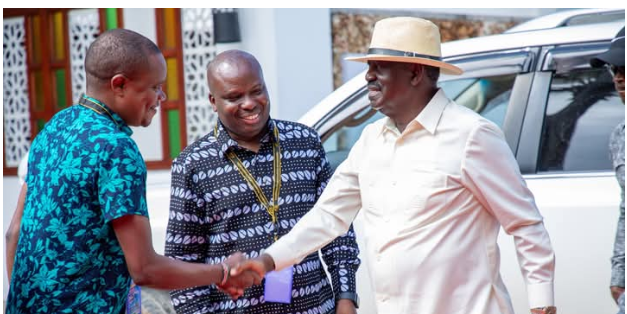
Bringing change inside government is not like brewing instant coffee; it takes time, ODM leader Raila Odinga has said.
He said in July last year, amid the Gen Z-led anti-government protests, ODM seconded "experts" to the Kenya Kwanza administration to help stabilise the country.
President William Ruto disbanded his Cabinet and later reconstituted it, bringing five ODM members into key government positions.
The five Cabinet Secretaries are John Mbadi (National Treasury), Opiyo Wandayi (Energy), Hassan Joho (Mining), Wycliffe Oparanya (Cooperatives), and Beatrice Askul (Asals).
Raila's party has faced criticism over what it has achieved since joining the government 10 months ago.
While insisting he has not held any government position since 2013, Raila urged Kenyans to give ODM time to demonstrate how a government should be run.
“As you know, ODM donated experts to the government in July last year. We are now in May. They have not done any budget yet. The first budget, with an ODM man at the helm of Finance, will be tabled in Parliament next month,” he said.
“So, give them time. It’s not like instant coffee that you brew and drink immediately. Real change takes time. But you will see the difference.”
Raila said the upcoming budget under the broad-based government will not increase the tax burden on Kenyans.
He spoke about plans to restructure the housing levy into an investment model, where contributors will be entitled to a refund if they do not receive a house.
“Just take the housing levy, for instance. It will now become an investment. If you’re paying and you don’t get a house, you’ll be entitled to a refund. So, give ODM time to show you how it can be done."
Raila spoke in Mombasa during the 42nd Institute of Certified Public Accountants of Kenya annual seminar.
He warned Members of Parliament against pushing to retain control over the National Government Constituency Development Fund (NG-CDF), saying their efforts would not succeed.
“MPs must stick to their constitutional mandate — representation, legislation, and oversight. You cannot oversee the government and implement projects. Do all the public participation you want, but in the end, it will have to go to a referendum — one that you will lose,” he said.
The NG-CDF accounts for 2.5 per cent of the national budget. Raila argued that the funds should be redirected to the counties to strengthen devolution.
“That 2.5 per cent is significant. It would increase the county allocation from the current minimum of 15 per cent to 17.5 per cent. We’ve always pushed for more resources to go to the counties. More funding at the local level means more services delivered to the people.”
Raila clarified he was not defending corrupt governors. “If a governor is corrupt, let them face the law,” he said.
Raila also criticised the continued central control of roads under agencies like Kura and Kerra, despite devolution.
“When I was Roads minister, I established KENHA, Kura, and Kerra to spur development across regions. But with devolution, counties should now handle these functions. There’s no reason why Kura in Nairobi should be managing roads in Mombasa,” he said.
“Over 50 per cent of roads in Mombasa are not under the county government. So, when residents blame the governor, they don’t realise the roads fall under national agencies based in Nairobi. That must change.”
He proposed that only the Kenya National Highways Authority, which manages major roads, should remain under the national government.
Urban and rural roads, he said, should be handed over to counties along with the corresponding funding.
He also addressed concerns about donor funding, saying Kenyans should not be worried if donors pull out.
“We don’t need donors — what we need are investors. We need trade and investment, not aid,” Raila said.
He emphasised the importance of creating a conducive environment for investment and accessing international markets.
“Our country has immense potential. If we provide an enabling environment, investors will come and fund the projects we are currently borrowing for. What we need is trade. Let markets open up to our goods and, in turn, let investors find opportunity in our country. That’s the path forward — not donor dependency.”











